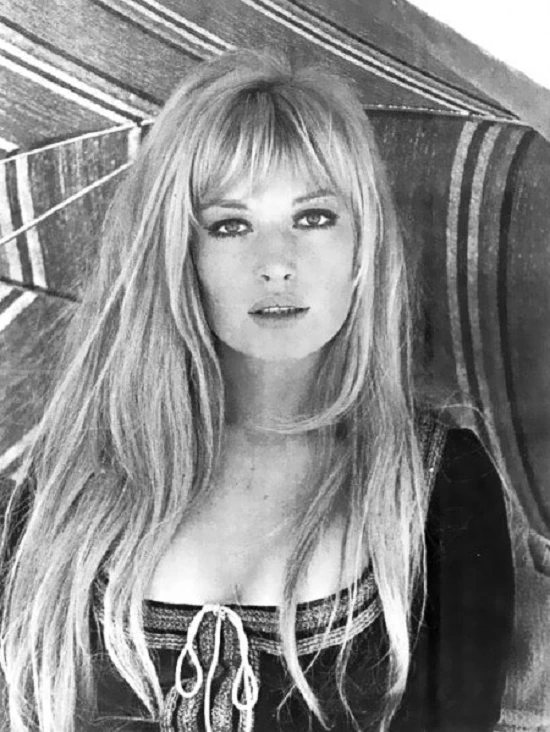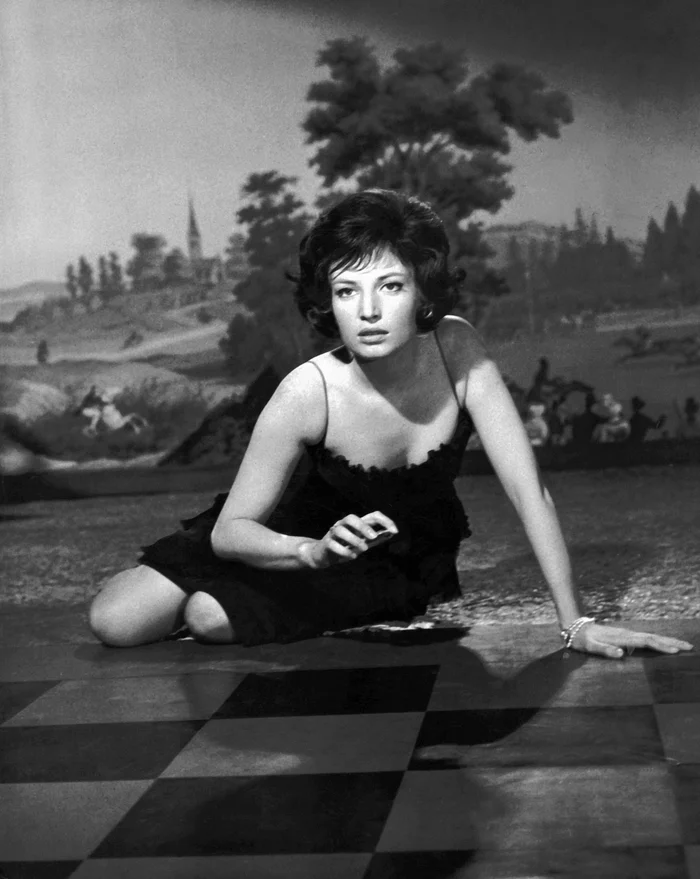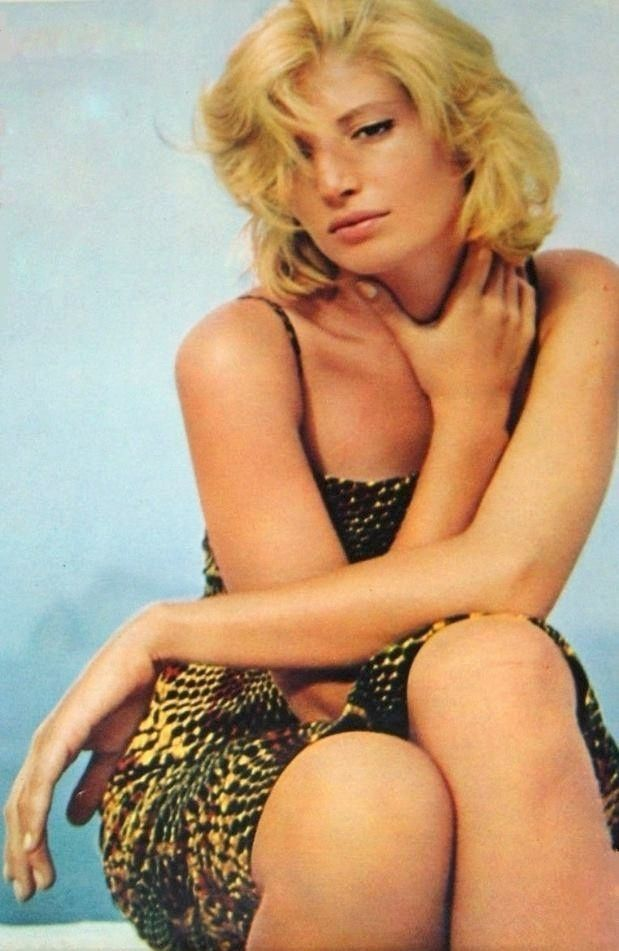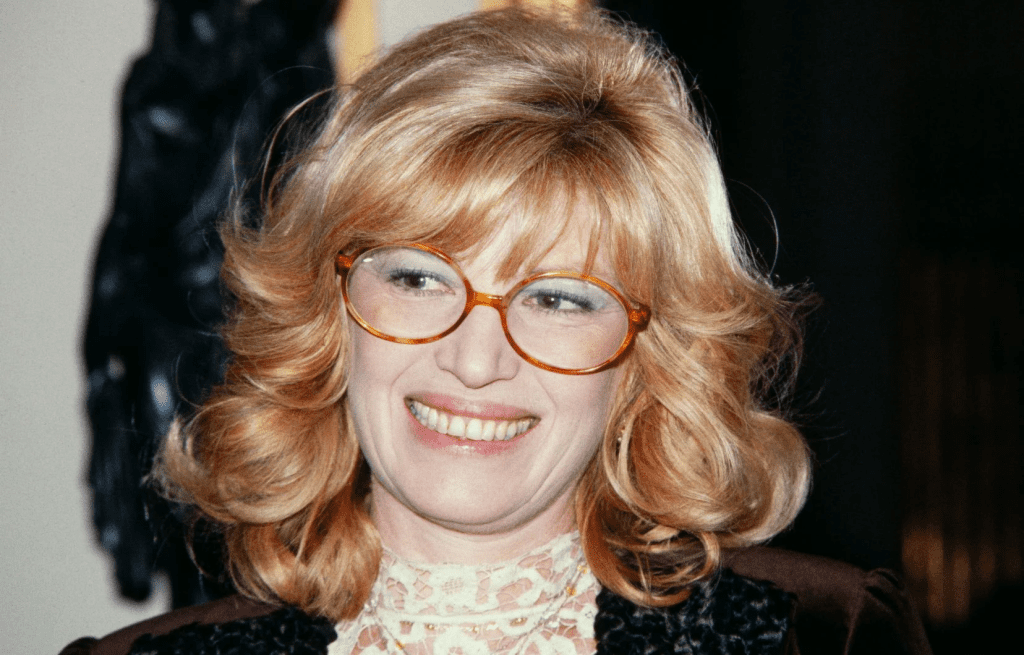Monica Vitti, a name synonymous with grace, beauty, and unmatched talent, remains an enduring icon of 1960s cinema. Known for her profound ability to express complex emotions with subtlety, she captivated audiences worldwide and solidified her place as one of Italy’s greatest film legends. From her collaborations with Michelangelo Antonioni to her transition into comedy, Vitti’s versatile performances and timeless charm created cinematic masterpieces that continue to inspire generations.
The Rise of Monica Vitti: A Star is Born

Born Maria Luisa Ceciarelli in Rome on November 3, 1931, Monica Vitti discovered her passion for acting early in life. Growing up in a modest household, her dreams of stardom were fueled by an unshakable determination to escape her circumstances. As a teenager, she performed on stage, displaying maturity and depth that belied her years.
In the 1950s, Vitti’s career began with minor film roles, often uncredited. It wasn’t until she met visionary director Michelangelo Antonioni that her career took a monumental turn. Antonioni, struck by her unique beauty and husky voice, recognized her potential and made her the muse of his iconic films.
The Antonioni Collaboration: Redefining Modern Cinema
Monica Vitti’s collaborations with Michelangelo Antonioni gave birth to some of the most celebrated works of modern cinema. Together, they crafted Antonioni’s groundbreaking “alienation trilogy,” which explored themes of isolation, emotional detachment, and existential despair.
- L’Avventura (1960): Vitti’s role as Claudia earned her international acclaim. The film’s innovative narrative and Vitti’s mesmerizing performance redefined storytelling in European cinema.
- La Notte (1961): Starring alongside Marcello Mastroianni, Vitti delivered another powerful performance that showcased her ability to convey complex emotions without excessive dialogue.
- L’Eclisse (1962): In this haunting masterpiece, Vitti starred opposite Alain Delon, embodying the melancholy and beauty of Antonioni’s vision.
Her collaboration with Antonioni pushed the boundaries of traditional filmmaking, and Vitti’s subtle yet expressive acting became the heart of these cinematic gems.
Breaking Boundaries: From Drama to Comedy
While Vitti was celebrated as a dramatic actress, she refused to be confined to a single genre. In the late 1960s, she showcased her incredible versatility by taking on comedic roles. Her transition surprised critics and audiences alike, proving that her talent was boundless.
One of her most notable comedic performances was in The Girl with the Pistol (1968), a lighthearted yet sharp satire that highlighted Vitti’s impeccable comedic timing and charm. This role broke stereotypes and demonstrated that she could effortlessly shift between the serious and the playful. Her ability to excel in diverse genres cemented her reputation as a well-rounded and extraordinary actress.
A Style Icon of the 1960s
Monica Vitti’s allure extended far beyond the silver screen. She became a fashion icon of the 1960s, inspiring trends that defined an era. Known for her bold eye makeup, voluminous blonde hairstyles, and sophisticated wardrobe, Vitti embodied Italian elegance and glamour.

Her chic, effortless style made her a muse for women around the world, and she remains a source of fashion inspiration to this day. Vitti’s on-screen charisma and off-screen poise created an image of timeless beauty that transcends generations.
The End of an Era: Monica Vitti’s Final Years
After her groundbreaking work in the 1960s and 1970s, Monica Vitti continued to act, although her roles became fewer over time. Her enduring relationship with cinematographer Roberto Russo brought her peace and stability. In 2000, after decades together, they married, marking a beautiful chapter in her personal life.
By the 1990s, Vitti began to withdraw from the public eye. Her battle with Alzheimer’s disease kept her away from the spotlight, and she lived in seclusion, cared for by Russo. Despite her absence, the world never forgot the luminous actress who once graced the screens with her unparalleled talent. Monica Vitti passed away on February 2, 2022, at the age of 90, leaving behind a legacy that continues to inspire.
Monica Vitti’s Enduring Legacy in Cinema

Monica Vitti’s contribution to cinema remains immeasurable. She was not only a master of her craft but also a trailblazer who shattered expectations and elevated the art of acting. Whether portraying the brooding melancholy of Antonioni’s films or lighting up the screen with her comedic brilliance, Vitti brought authenticity, passion, and artistry to every role she embraced.
Her legacy lives on in the performances of modern actors, the visions of directors she inspired, and the hearts of film enthusiasts who cherish her work. Monica Vitti’s ability to express the inexpressible, to captivate with a single glance, and to redefine storytelling has made her a timeless star in the history of cinema.

Conclusion
Monica Vitti’s life and career are a testament to the power of artistic expression and the beauty of raw talent. From her groundbreaking roles in Antonioni’s films to her triumphant foray into comedy, she left an indelible mark on the world of cinema. A muse, a style icon, and a versatile actress, Vitti’s extraordinary talent ensured her place as one of the most celebrated figures in film history. Her legacy continues to shine, reminding us of the magic and elegance she brought to the screen.


